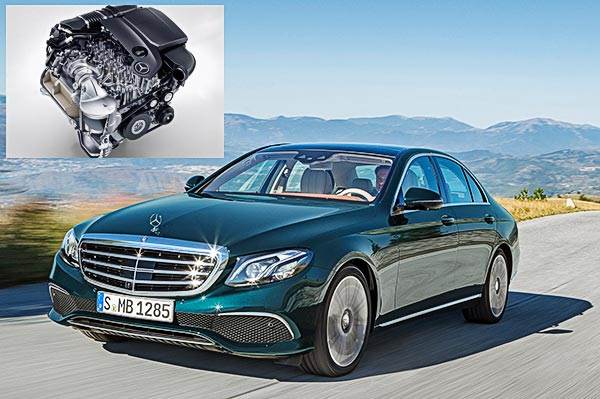The new Mercedes 2.0-litre diesel engine is unlikely to make its way to India anytime soon since the unit is only compliant with Euro V and VI fuel quality. India currently follows BS-IV norms (equivalent of Euro IV) in more than 50 cities where the required grade of fuel is available, while the rest of the country still follows BS-III standards.
“The new 2.0-litre diesel engine is not compatible with BS-IV fuel quality. In India, you have a downward compatibility that means Euro III and IV cars can run on fuel of Euro V and VI quality. But a Euro VI compatible vehicle cannot run on Euro III or IV fuel,” Roland Folger, Managing Director and CEO, Mercedes-Benz India told Autocar India.
As announced earlier, the government will pass over the BS-V emission standards and directly implement BS-VI across the country from April 1, 2020.
The engine, dubbed OM564, is the first all-aluminum diesel from the German automaker and made its debut in the new E-class globally earlier this year. Mercedes plans to equip all its cars, right from the A-class to the GL-series, with this powertrain globally.
The new 1,950cc, 2.0-litre, four-cylinder diesel engine replaces the 2.1-litre unit and despite having a lower displacement, sees a bump in power. It is even claimed to be 14 percent more efficient and around 30kg lighter. Currently, it is unclear whether the carmaker will equip the all-new E-class in India, which is set to arrive in early 2017, with the next-generation powertrain.
Moreover, apart from the new diesel engine, the German carmaker’s new technology on hybrids too is only compliant with Euro V and VI fuel quality. “Our complete new technology on hybrids, plug-in hybrids and full hybrids all anchors on Euro V and VI fuel, because there is no point in developing such a technology for Euro III and IV markets from a volume perspective because there are only a few markets around the word that that still adhere to those norms,” Folger added.
Mercedes-Benz has been gravely hit by the ongoing ban on sale of vehicles above 2,000cc in Delhi-NCR. It is ironic that the carmaker which has a Euro VI-compliant diesel engine under 2,000cc is being penalised due to the fuel quality.
However, it does not want to introduce vehicles below 2,000cc just to sidestep the ruling. “Just bringing out vehicles having capacities below 2,000cc is not going to solve any pollution issues. It will on the other hand send out a completely wrong message to the authorities,” Folger said.
In any case, bringing in new diesel engines would be difficult now as even a decision on a sub-2,000cc diesel running on Euro IV fuel would require a fair amount of time with testing and additional investments.



Comments
Member Login
Personal Details
No comments yet. Be the first to comment.